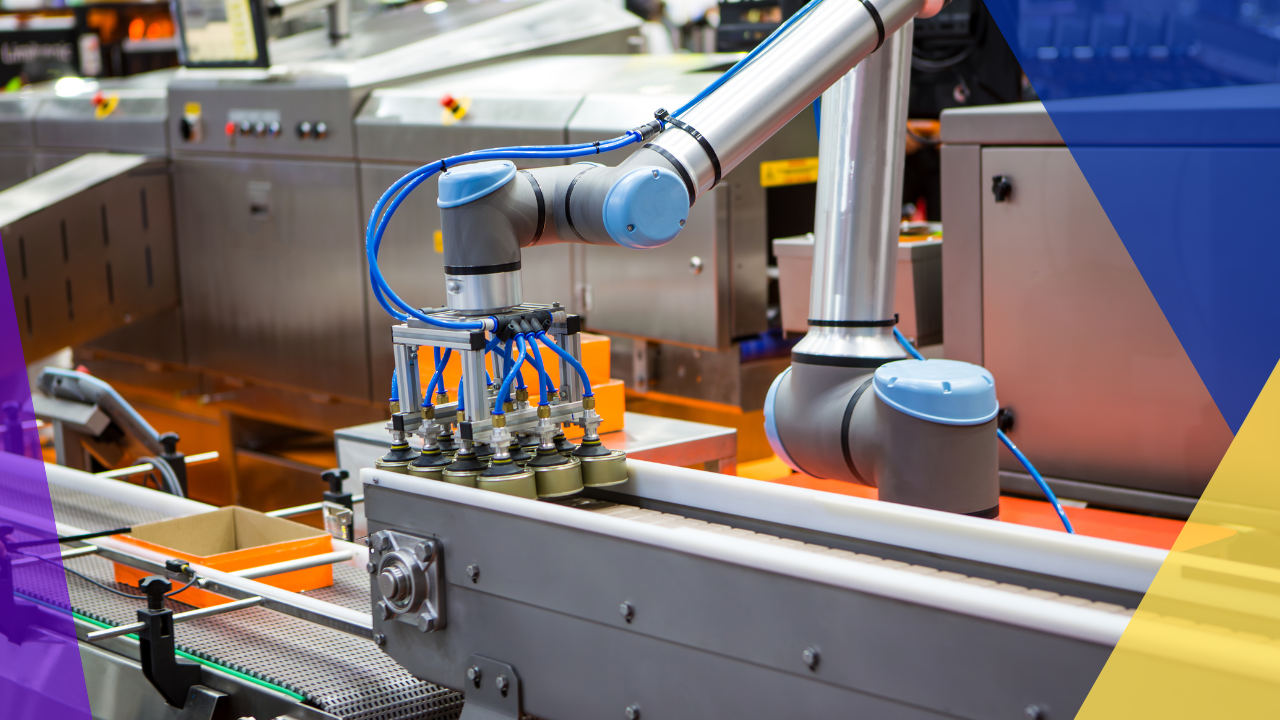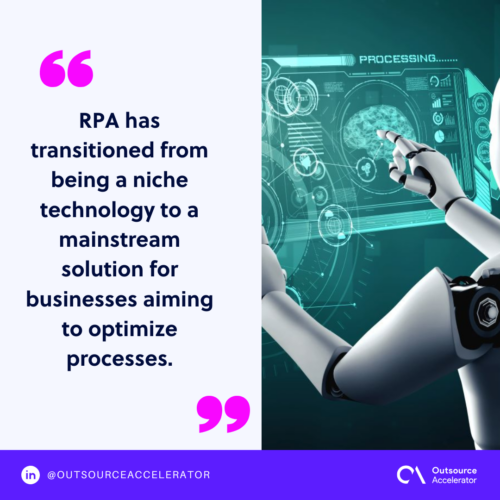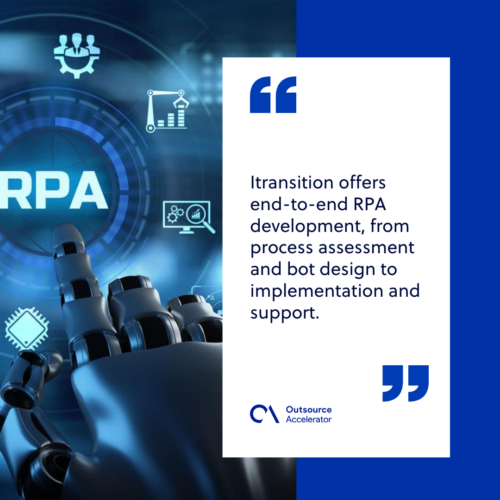Tech forecast: RPA trends and innovations for 2025

Robotic Process Automation (RPA) is one of the latest technologies that are helping businesses embrace digital transformation.
RPA, a technology that automates repetitive, rule-based tasks, has become a cornerstone of operational agility across industries.
As we look towards 2025, the tech landscape is poised for significant innovation. A number of RPA trends are being driven by advancements in technology and evolving business needs.
This article explores the current state of RPA, the emerging RPA trends for 2025, and Itransition’s role as a transformative software partner.
The current state of RPA
RPA has transitioned from being a niche technology to a mainstream solution for businesses aiming to optimize processes. Today’s RPA trends see it widely used across industries like finance, healthcare, retail, and manufacturing.
They handle tasks such as invoice processing, data entry, and customer support, significantly reducing manual workload and minimizing errors.
A Deloitte survey found that 74% of responders had already implemented RPA, with 46% planning to further incorporate more AI technologies.
Despite its widespread adoption, many organizations face challenges in scaling RPA. These include difficulties in integrating RPA with legacy systems, high upfront implementation costs, and a lack of skilled personnel to manage automation workflows.
Nonetheless, the promise of increased efficiency and cost savings continues to drive investments in RPA, setting the stage for its next phase of evolution.

Emerging RPA trends for 2025
As we approach 2025, several RPA trends are set to redefine the software environment.
These innovations will not only enhance the capabilities of RPA but also expand its applicability across more complex business scenarios.
1. The rise of hyperautomation
In hyperautomation, RPA is combined with advanced analytics, machine learning, and artificial intelligence. This RPA trend is expected to dominate the automation ecosystem.
This approach enables businesses to automate entire end-to-end processes, rather than isolated tasks. For instance, an RPA bot could handle invoice processing while an AI algorithm analyzes spending patterns to optimize procurement strategies.
2. Low-code and No-code platforms
The RPA trend of low-code and no-code developmental platforms make the technology accessible to a broader audience. These platforms empower non-technical users to create and deploy automation workflows using drag-and-drop interfaces.
By reducing reliance on IT departments, businesses can accelerate the deployment of RPA solutions and foster a culture of innovation.
3. Intelligent Document Processing (IDP)
Traditional RPA struggled with unstructured data like scanned documents or handwritten forms. The RPA trend of integrating it with IDP technology is changing this.
By leveraging optical character recognition (OCR) and AI, RPA bots can now extract data from complex documents and process it accurately. This is particularly beneficial in industries like insurance and healthcare, where unstructured data is prevalent.
4. Cloud-based RPA solutions
Cloud computing is transforming RPA deployment models, offering businesses greater flexibility and scalability. Cloud-based RPA solutions eliminate the need for expensive on-premise infrastructure, making automation more cost-effective for small and medium-sized enterprises.
Additionally, cloud solutions support seamless updates and integrations, ensuring that businesses always have access to the latest RPA capabilities.
5. Enhanced security and compliance features
As RPA adoption grows, so does the importance of robust security measures. Gartner notes a 15.1% increase in spending for information security, specifically to combat AI-powered attacks.
RPA vendors are increasingly integrating features like data encryption, role-based access control, and compliance reporting into their solutions.
These advancements are particularly critical for industries handling sensitive information, such as banking and healthcare.
6. Collaborative automation with Human-in-the-Loop models
Collaborative automation, or human-in-the-loop (HITL) models, will gain prominence as an RPA trend in 2025. These models combine the efficiency of RPA with human oversight, enabling real-time intervention in complex processes.
For example, an RPA bot can flag anomalies during a financial audit, which a human expert then reviews. This synergy ensures higher accuracy and adaptability in dynamic scenarios.
Itransition’s role as an RPA service provider
Itransition has established itself as a leading provider of RPA services, helping businesses harness the full potential of automation.
By combining technical expertise with a customer-centric approach, Itransition delivers tailored solutions that align with unique business objectives.
Comprehensive RPA development services
Itransition offers end-to-end RPA development, from process assessment and bot design to implementation and support. Their products are made to easily interface with current systems, guaranteeing that operations will be disrupted as little as possible.

Expertise in hyperautomation
Recognizing the transformative potential of hyperautomation, Itransition integrates RPA with advanced technologies like AI and ML. This enables clients to automate complex workflows, enhance decision-making, and achieve greater operational efficiency.
Scalable cloud-based solutions
Itransition provides cloud-based RPA platforms that offer scalability and cost-efficiency. These solutions cater to businesses of all sizes, ensuring that even small enterprises can benefit from cutting-edge automation.
Focus on security and compliance
Understanding the criticality of data security, Itransition incorporates robust safeguards into its RPA solutions. Their tools comply with global standards and regulations, giving businesses peace of mind while automating sensitive processes.
Ongoing support and optimization
Itransition’s commitment extends beyond deployment. They offer continuous support and optimization services, ensuring that RPA solutions evolve with changing business needs.
Keep to the latest RPA trends and partner with Itransition for successful implementation. Contact them today.







 Independent
Independent




